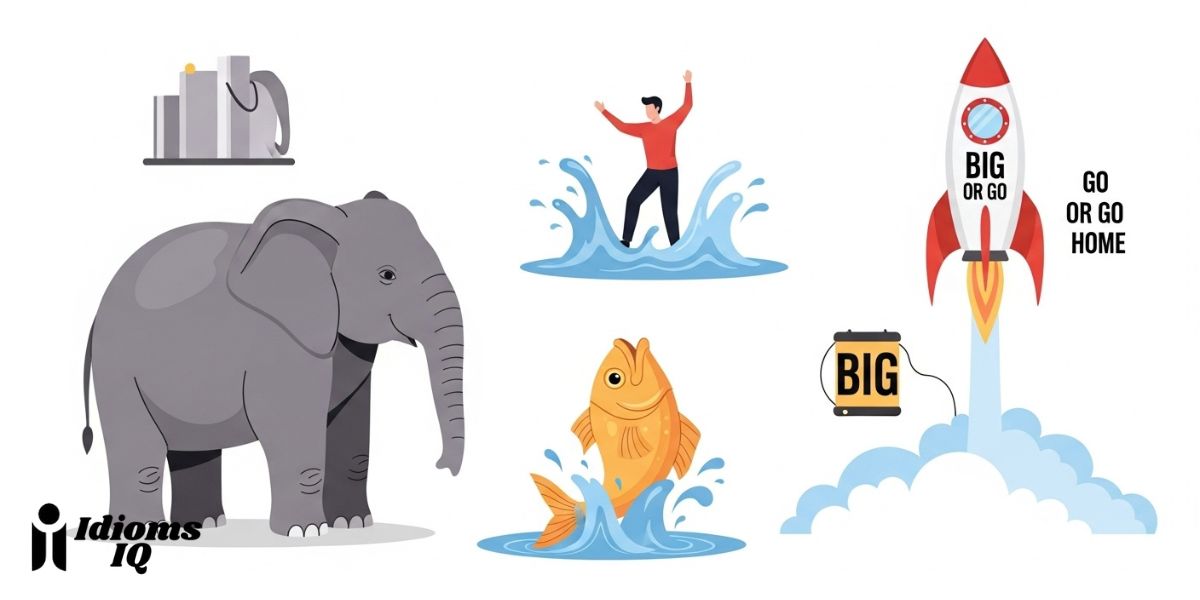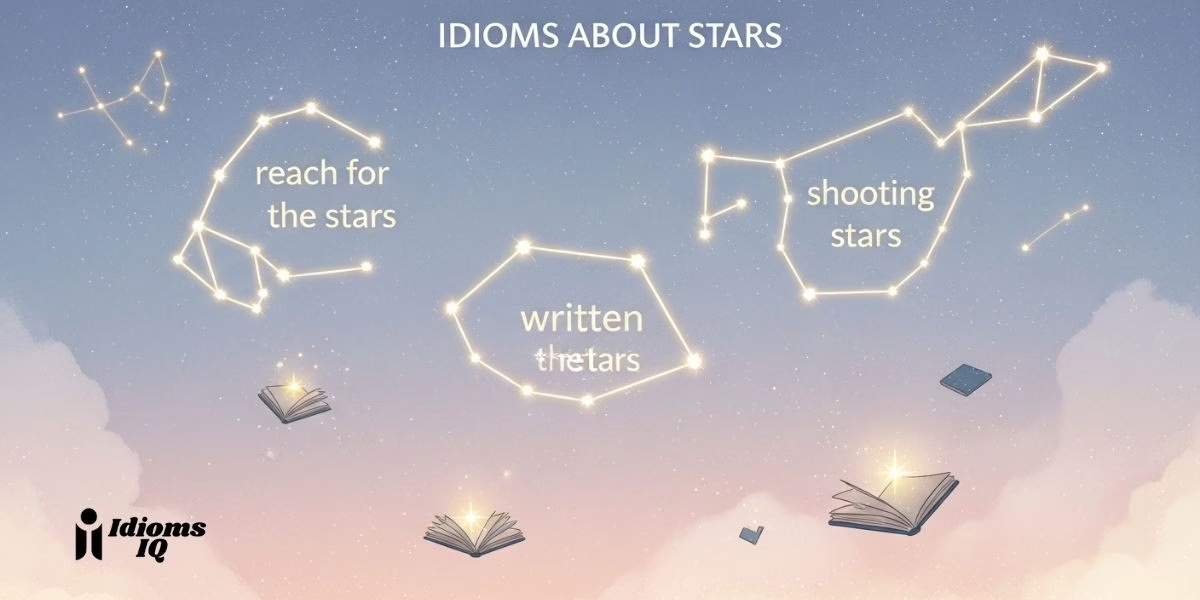
If you tell the truth, you don’t have to remember anything.” This timeless observation from Mark Twain neatly captures the core difference between honesty and deceit: one is simple, the other a tangled web. While the concept of a “lie” seems straightforward, the English language has developed a vast and surprisingly nuanced arsenal of idioms to describe the act of deception. These phrases are more than just colorful ways to call someone a liar; they are a linguistic footprint of our complex social world.
This guide serves a dual purpose. First, it is a definitive dictionary of 40 essential idioms for lying, complete with meanings and examples to enrich your vocabulary. Second, it explores how these expressions function as powerful devices in storytelling, allowing writers, filmmakers, and artists to add layers of character, theme, and suspense that literal language simply cannot convey.
Related: Metaphors for Trust
The Art of the Untruth: How Idioms Weave a Web of Lies in Storytelling
In literature and film, idioms are not just decorative; they are functional tools that build worlds and reveal character. The language of deception, in particular, relies on a set of powerful, shared conceptual metaphors that writers can use as narrative shorthand. These metaphors tap into our intuitive, physical understanding of the world to convey abstract moral concepts.
The Power of Metaphor in Deception
Our understanding of dishonesty is largely structured by a few core metaphorical concepts that appear again and again in our idiomatic language.
- Dishonesty is Covered or Hidden: This is perhaps the most common metaphor. It frames a lie as an object or substance used to obscure the truth from view. Idioms like “pull the wool over someone’s eyes,” “smoke and mirrors,” and the idea of a “cover story” all evoke a physical act of concealment. For a writer, using these phrases instantly creates an atmosphere of secrecy and manipulation, suggesting that the truth is present but actively being hidden from a character or the audience. The directors of the film
Devil’s Due even explicitly referenced this, stating they did not want to “pull the wool over their eyes” about the movie’s found-footage style, acknowledging the audience’s awareness of such cinematic tricks. - Dishonesty is Crooked or Twisted: We intuitively associate “straightness” with honesty and integrity. Consequently, dishonesty is often framed as something bent, twisted, or crooked. Idioms like “crooked as a dog’s hind leg” or the act of “bending the truth” tap into this physical metaphor. When a character is described as “crooked,” it implies a fundamental moral deformity, a deviation from the straight path of honesty.
- Dishonesty is Dark or Dirty: This metaphor connects falsehood with moral stain and corruption. Phrases like a “shady deal” or the concept of getting one’s “hands dirty” suggest that deceit is an unclean act that leaves a mark on the perpetrator. It allows writers to paint deception not just as an intellectual act but as a source of moral pollution.
Idioms as Narrative Shorthand
Beyond these broad metaphors, certain idioms function as condensed narrative archetypes. They succeed because they import an entire pre-existing story and its associated moral framework into a single, efficient expression, giving writers an incredibly potent tool for characterization and foreshadowing.
- Building Character: An author can instantly establish a character’s treacherous nature by calling them a “snake in the grass”. This phrase does more than just mean “a deceitful person”; it evokes the biblical story of the serpent in the Garden of Eden, bringing with it connotations of temptation, betrayal of trust, and hidden danger. Similarly, describing a villain as a
“wolf in sheep’s clothing” is a powerful archetype used in film and literature to signify a predator hiding among the innocent, creating immediate tension and foreshadowing future harm. - Creating Suspense: The concept of a “web of lies” is a central plot device in countless narratives. In Arthur Miller’s The Crucible, Abigail Williams weaves a web of accusations that entangles and destroys an entire community, with each lie requiring another to sustain it. The suspense builds as the audience watches the web grow, wondering when it will finally collapse. Likewise, the carefully constructed falsehoods of a character like Jay Gatsby, who lies about his past and the source of his wealth, create a central mystery that drives the novel forward.
- Driving the Plot: An entire story can be built around a central act of deception, with idioms serving as thematic anchors. A corporate thriller might revolve around executives trying to “cook the books” to defraud investors. A romance could be about one character
“leading another up the garden path” with false promises of love, leading to an inevitable, heartbreaking discovery. These idioms provide a thematic core around which the entire plot can be structured.
The Deceiver’s Dictionary: 40 Essential Idioms for Lying
To help navigate the nuanced world of untruths, the following idioms are categorized by the type of deception they describe. From blatant falsehoods to subtle manipulations, mastering this vocabulary is key to understanding and using the language of deception effectively.
Quick Reference Guide to Lying Idioms
For those in a hurry, this table provides a snapshot of some of the most common idioms and their core meanings.
| Idiom | Core Meaning |
| Lie through one’s teeth | To lie boldly and shamelessly. |
| Stretch the truth | To exaggerate the facts. |
| A white lie | A small, harmless lie told to be polite. |
| Pull the wool over someone’s eyes | To deceive or trick someone. |
| Cook the books | To falsify financial records. |
| Smell a rat | To suspect that something is wrong. |
| Come clean | To confess the truth. |
| Lead someone up the garden path | To mislead someone with false promises. |
| A pack of lies | A story that is completely untrue. |
| Full of hot air | Prone to making empty, boastful claims. |
A. Blatant Falsehoods (The Outright Lie)
These idioms describe lies that are direct, shameless, and often obvious. They are used when there is no attempt to be subtle about the falsehood.
- Lie through one’s teeth
- Meaning: To tell a blatant and obvious lie with confidence and without remorse.
- Example: He was lying through his teeth when he said he had finished the report, but I saw him starting it just an hour ago.
- Bald-faced lie / Barefaced lie
- Meaning: A brazen, shameless, and obvious lie.
- Example: Her claim that she had never met the man was a bald-faced lie; there were photos of them together.
- A pack of lies
- Meaning: A series of statements that are completely untrue.
- Example: The witness’s testimony turned out to be a pack of lies designed to protect the real culprit.
- Lie like a rug
- Meaning: A humorous or sarcastic way to say someone lies constantly and shamelessly.
- Example: You can’t believe a word he says; the man lies like a rug.
- Did You Know? This American idiom is a clever pun. It plays on the two meanings of the verb “to lie”: to tell a falsehood and to recline in a flat position. Since a rug spends all its time lying on the floor, the phrase humorously suggests someone is a constant and habitual liar.
- Pants on fire
- Meaning: A playful, often childish way to accuse someone of lying, from the rhyme “Liar, liar, pants on fire”.
- Example: “You ate the last cookie!” shouted the little girl. “Liar, liar, pants on fire!”
- Full of hot air
- Meaning: Prone to making exaggerated, boastful, or untrue statements that are ultimately meaningless.
- Example: The candidate made a lot of grand promises, but most people thought he was just full of hot air.
- That’s total BS / Bollocks
- Meaning: A very informal and vulgar expression used to dismiss something as complete nonsense or an outright lie. “BS” is American slang for “bullshit,” while “bollocks” is its British equivalent.
- Example: He said he could finish the project in a day? That’s total BS.
- Lie to someone’s face
- Meaning: To lie directly to a person without shame, often while looking them in the eyes.
- Example: I can’t believe he had the audacity to lie to my face about where he was last night.
- A lie has no legs
- Meaning: A lie cannot be sustained or defended for long because it lacks the support of truth.
- Example: He tried to maintain his story, but the evidence mounted against him, proving that a lie has no legs.
- Nothing could be further from the truth
- Meaning: A strong and formal way to say that something is a complete lie.
- Example: They accused her of being lazy, but nothing could be further from the truth; she’s the hardest worker in the office.
B. Subtle Deceptions & Half-Truths (The Softer Lie)
This category covers deceptions that involve exaggeration, omission, or softening the truth rather than fabricating it entirely.
- Bend the truth
- Meaning: To alter facts or details slightly, making a statement not entirely true.
- Example: He didn’t lie outright, but he did bend the truth about his qualifications to get the job.
- Stretch the truth
- Meaning: To exaggerate facts to make something seem more impressive or dramatic than it really is.
- Example: She has a habit of stretching the truth about her adventures abroad to make her life sound more exciting.
- A white lie
- Meaning: A small, harmless, or trivial lie told to be polite or to avoid hurting someone’s feelings.
- Example: I told my aunt her cooking was delicious, which was a white lie to make her happy.
- Economical with the truth
- Meaning: A formal and euphemistic way of saying that someone is deliberately not telling the whole truth by omitting key facts.
- Example: When questioned about the project’s failures, the manager was accused of being economical with the truth.
- Sugar-coat something
- Meaning: To make something difficult or unpleasant seem more palatable by presenting it in a positive or less direct way.
- Example: There’s no way to sugar-coat this; the company is facing significant losses this quarter.
- Spin a yarn / Tell a tall tale
- Meaning: To tell a long, imaginative, and often exaggerated story that is not entirely true.
- Example: My grandfather loves to spin a yarn about his time in the army, though we suspect most of it is fiction.
- Did You Know? The phrase “tall tale” is an Americanism that emerged in the 19th century. It is closely associated with the folklore of the American frontier, where exaggerated stories about legendary heroes like Paul Bunyan and Davy Crockett were a popular form of entertainment. The word “tall” in this context means “exaggerated” or “stretched,” reflecting how the story inflates the truth.
- Fibbing / Telling porkies
- Meaning: To tell small, unimportant lies. “Fibbing” is common with children, while “telling porkies” is British slang, derived from Cockney rhyming slang where “pork pies” rhymes with “lies”.
- Example: The child was clearly fibbing when he claimed the dog ate his homework.
- Lying by omission
- Meaning: Deceiving someone by deliberately leaving out important information.
- Example: He committed a lie by omission when he sold the car without mentioning its history of engine problems.
- Blow smoke
- Meaning: To say things that are not true in order to mislead or confuse someone, often to make oneself seem more knowledgeable than one is.
- Example: The consultant was just blowing smoke; he used a lot of jargon but offered no practical solutions.
- Smooth it over
- Meaning: To make a problem or disagreement seem less serious by hiding details or telling a partial truth.
- Example: After their argument, she tried to smooth it over by pretending nothing had happened, but the tension remained.
C. Elaborate Trickery & Manipulation (The Devious Lie)
These idioms describe more complex forms of deception that often involve a scheme, a trick, or a sustained effort to mislead someone for personal gain.
- Pull the wool over someone’s eyes
- Meaning: To deceive or trick someone by concealing the truth.
- Example: The scam artist pulled the wool over their eyes with a sob story and made off with their money.
- Did You Know? The most widely cited origin for this idiom dates to 17th and 18th-century Europe when wealthy men wore elaborate woolen wigs. A thief or an opponent in a duel could gain an advantage by physically pulling the wig down over the victim’s eyes, temporarily blinding them. An alternative theory suggests it comes from sheep farming, where sheep with excessive wool growth around their faces could become effectively blind until sheared.
- Lead someone up the garden path
- Meaning: To mislead or deceive someone, often with false promises or misleading information.
- Example: He led her up the garden path for months, making her believe he was going to propose when he had no intention of doing so.
- Take someone for a ride
- Meaning: To trick or deceive someone, usually to get money from them.
- Example: We were taken for a ride by the tour guide who charged us double the actual price for the tickets.
- Cook the books
- Meaning: To illegally alter a company’s financial records to make them look more profitable than they are.
- Example: The accountant was arrested for cooking the books and hiding years of corporate losses.
- Did You Know? This phrase has culinary roots. The verb “to cook” has been used to mean “to manipulate or falsify” since at least the 17th century. The idiom draws a direct metaphor between a chef altering ingredients in a recipe and an accountant altering numbers in a financial ledger to achieve a more desirable, albeit fraudulent, result.
- Smoke and mirrors
- Meaning: Something that is intended to deceive or confuse people, making a situation seem better or more complex than it really is.
- Example: The company’s impressive profit forecast was just smoke and mirrors to attract new investors before it collapsed.
- Bait and switch
- Meaning: A deceptive marketing tactic where a customer is lured in by an attractive offer (the bait) which is then revealed to be unavailable, and they are pressured to buy a more expensive alternative (the switch).
- Example: The advertised laptop was a classic bait and switch; when I got to the store, they said it was sold out and tried to sell me a model for twice the price.
- Pull a fast one
- Meaning: To trick or deceive someone in a clever way.
- Example: The seller pulled a fast one on me by showing me a high-quality sample and then delivering an inferior product.
- A snow job
- Meaning: An effort to deceive or persuade someone with insincere talk, flattery, or an overwhelming amount of information.
- Example: His explanation was a complete snow job, full of technical details meant to confuse us so we wouldn’t ask any hard questions.
- Monkey business / Funny business
- Meaning: Deceitful, mischievous, or unethical behavior.
- Example: The auditors suspected there was some monkey business going on when they saw irregularities in the expense reports.
- A wolf in sheep’s clothing
- Meaning: A person who appears to be harmless and friendly but is actually hostile and dangerous.
- Example: He seemed like a kind benefactor, but he turned out to be a wolf in sheep’s clothing who was only after her family’s fortune.
D. Suspicion, Discovery & Confession (The Aftermath of a Lie)
This final group of idioms deals with the consequences of deception from the first inkling of suspicion to the final act of confession.
- Smell a rat
- Meaning: To begin to suspect that something is wrong or that someone is being dishonest.
- Example: When the politician suddenly changed his vote after a private meeting, journalists began to smell a rat.
- Caught red-handed
- Meaning: To be discovered in the very act of doing something wrong or illegal.
- Example: The thief was caught red-handed with his hand in the cash register.
- The scales fall from your eyes
- Meaning: To suddenly understand the truth about a situation after a period of deception or ignorance.
- Example: When I saw the evidence of his betrayal, the scales fell from my eyes and I finally realized what kind of person he was.
- See right through someone
- Meaning: To understand someone’s true intentions or character, despite their attempts to deceive.
- Example: Don’t bother trying to lie to her; she’ll see right through you.
- Come clean
- Meaning: To confess or tell the truth about something that has been kept secret, often after being confronted.
- Example: After hours of questioning, the suspect finally decided to come clean and admit everything.
- Make a clean breast of it
- Meaning: A more formal way to say “come clean”; to confess everything about wrongdoing.
- Example: He decided to go to the police and make a clean breast of it before the situation got any worse.
- Spill the beans / Spill your guts
- Meaning: To reveal a secret or confess everything. “Spill your guts” is a more intense, informal American slang version.
- Example: We knew she was planning a surprise party, and we finally got her brother to spill the beans.
- Blow the whistle on someone
- Meaning: To report illegal or unethical activity within an organization to the authorities
- Example: The accountant blew the whistle on her company for tax evasion, leading to a major investigation.
- Written all over your face
- Meaning: When someone’s guilt, dishonesty, or true emotions are clearly visible in their facial expression.
- Example: He denied breaking the vase, but guilt was written all over his face.
- The truth will out
- Meaning: A proverb suggesting that the truth will always eventually be discovered, no matter how well it is hidden.
- Example: He thought he could get away with it, but as they say, the truth will out.
Put It into Practice: Test Your Idiom IQ
Reading about idioms is one thing, but using them correctly is the real test. This short exercise is designed to move the knowledge from the page into active memory, solidifying comprehension and retention. Read each sentence below and fill in the blank with the most appropriate idiom from the word bank. The answers are at the end of the post.
Word Bank:
- come clean
- a white lie
- stretch the truth
- smell a rat
- cook the books
- lying through his teeth
- pull the wool over our eyes
- smoke and mirrors
- took them for a ride
- fibbing
Quiz Questions:
- The politician was accused of _______ when he claimed the new policy would have no financial impact, a statement everyone knew was false.
- I knew my son was _______ about eating the cookies because he had chocolate all over his face.
- She didn’t want to hurt her friend’s feelings, so she told _______ and said she loved the rather unflattering haircut.
- The CEO was sent to prison for trying to _______ and embezzling millions from the company.
- He tried to _______ by claiming he was a certified expert, but a quick background check revealed he had no qualifications.
- After weeks of strange behavior, I started to _______ and suspected my business partner was planning something behind my back.
- He tends to _______ about the size of the fish he caught, claiming it was three feet long when it was barely a foot.
- The con artist _______ with a fake investment scheme, disappearing with their life savings.
- After being caught, the teenager had to _______ and admit to his parents that he had skipped school.
- The elaborate presentation was just _______ to distract investors from the company’s terrible financial performance.
Answer Key for Practice Quiz:
- lying through his teeth
- fibbing
- a white lie
- cook the books
- pull the wool over our eyes
- smell a rat
- stretch the truth
- took them for a ride
- come clean
- smoke and mirrors
Conclusion:
The rich tapestry of idioms for lying reveals more than just a collection of clever phrases. It shows how language evolves to meet the complex demands of human society, providing us with the precise tools needed to define everything from a harmless fib to a devastating betrayal. For writers, these idioms are a gift, offering a direct line to shared cultural metaphors and archetypes that can instantly build character, create tension, and drive a narrative forward.
What’s your favorite idiom for lying, or have you heard one used in a memorable way? Share your story in the comments below!






